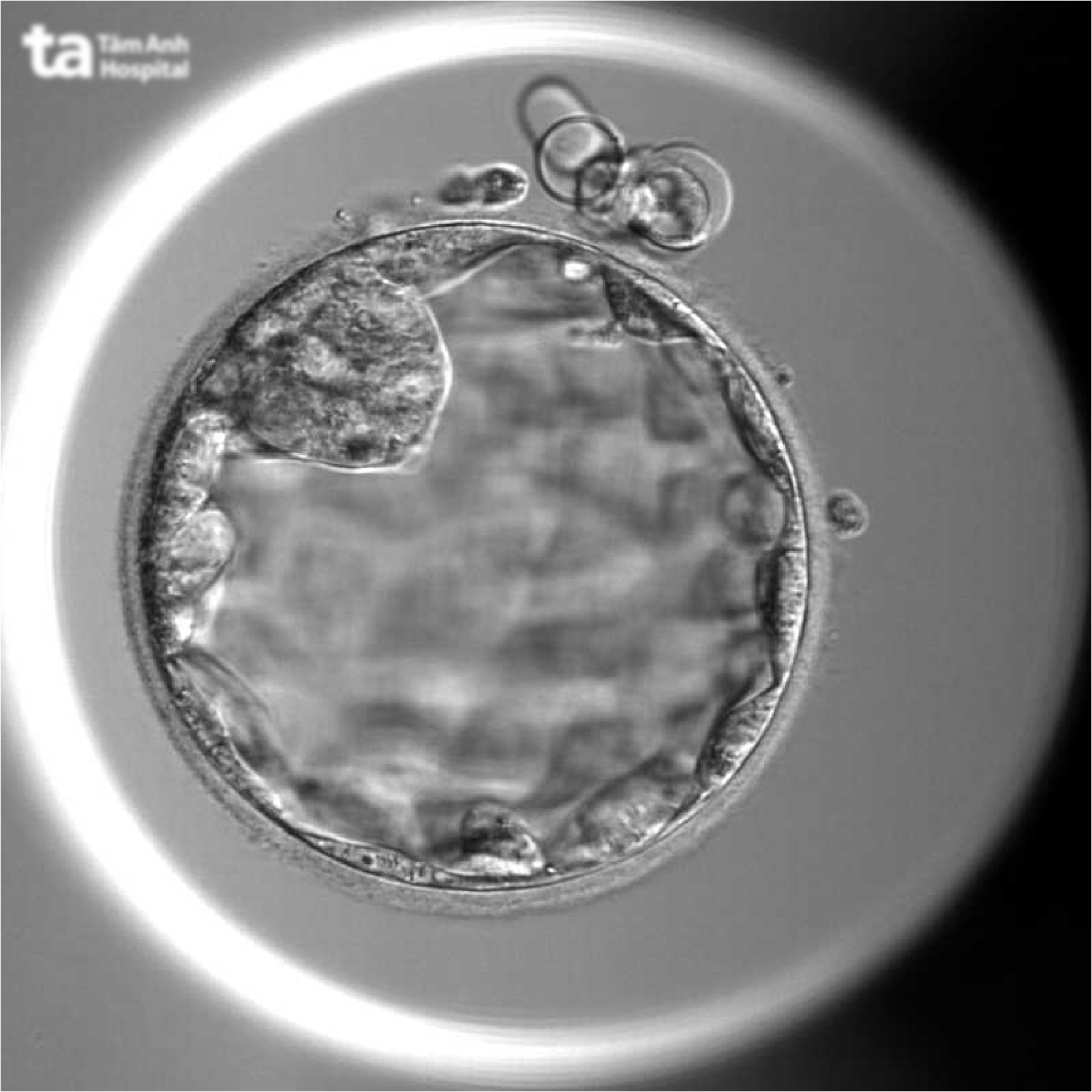After years of trying and multiple failed in vitro fertilization (IVF) cycles, Ms. Thao, 32, is now 17 weeks pregnant, a success achieved despite 90% of her eggs being abnormal. Her journey highlights the challenges of infertility and the advancements in reproductive medicine.
In her initial IVF cycle, Ms. Thao produced 20 eggs, most of which were immature and morphologically abnormal. Only one day 5 embryo and one day 6 embryo, both of type 3 quality, were cultured. The first embryo transfer did not result in pregnancy, and the second led to a biochemical pregnancy. Her second IVF cycle yielded similar results, with two more failed embryo transfers.
Seeking a new approach, Ms. Thao and her husband visited the Center for Reproductive Support, Tam Anh General Hospital TP HCM (IVF Tam Anh TP HCM) in early 2025. Master, Doctor Nguyen Thi Thuy, who oversaw her case, noted that initial film scans showed normal fallopian tubes, but an ultrasound revealed endometriosis. Chromosome tests for both Ms. Thao and her husband showed no abnormalities, ruling out genetic risks for the embryos.
Doctor Thuy initiated ovarian stimulation, resulting in the retrieval of 19 eggs. Most displayed morphological defects, including indentations and pitted cytoplasm, and failed to reach maturity. Embryologists meticulously cleaned and cultured all the eggs in an optimal environment, ultimately selecting 14 eggs suitable for fertilization with her husband's sperm. This process yielded three day 3 embryos, but only one survived the rigorous natural selection to reach day 5, while two others ceased development. Artificial intelligence (AI) software scored the quality of this sole embryo as type 3, indicating an average grade.
 |
Image of a day 5 embryo cultured at IVF Tam Anh TP HCM. Photo: Thu Thao |
With only one viable embryo, it was cryopreserved to await an ideal moment for uterine transfer. During a hysteroscopy, Doctor Thuy identified additional conditions: endometriosis and chronic endometritis. These factors could impede implantation and development, leading to failed embryo transfers or biochemical pregnancies. Ms. Thao underwent a two-week course of antibiotics to resolve the inflammation and received treatment to suppress the endometriosis.
Following the comprehensive treatment, Doctor Thuy transferred the single embryo into Ms. Thao's uterus, resulting in a successful pregnancy. Her pregnancy is now 17 weeks and progressing well.
According to Doctor Thuy, poor egg quality is most common in older women due to diminished ovarian reserve and accumulated genetic errors. In younger women, this condition is less frequent; aside from genetic factors, it can be attributed to the patient's constitution, the effects of chemotherapy or radiation, gynecological infections, or an unhealthy lifestyle, such as smoking or excessive alcohol consumption.
Doctor Thuy advises couples who have not conceived after one year of marriage to seek early examination and treatment. In vitro fertilization can provide an optimal culture environment, increasing the chances for eggs and sperm to fertilize and develop into healthy embryos.
Hoai Thuong
*Patient's name has been changed












